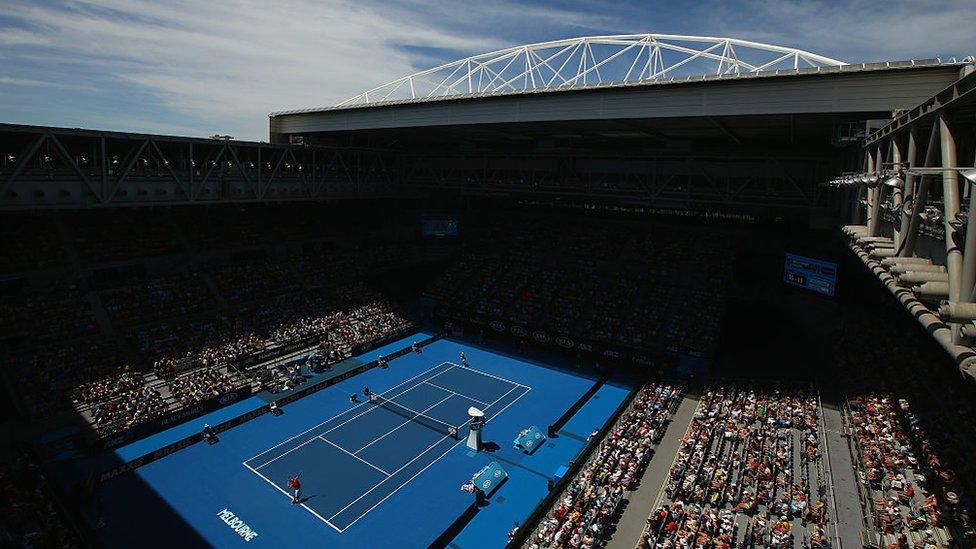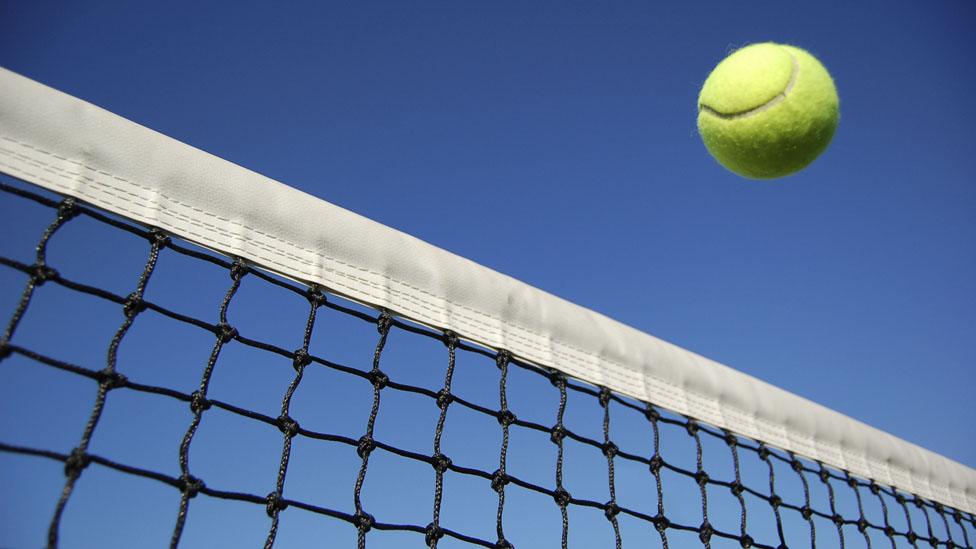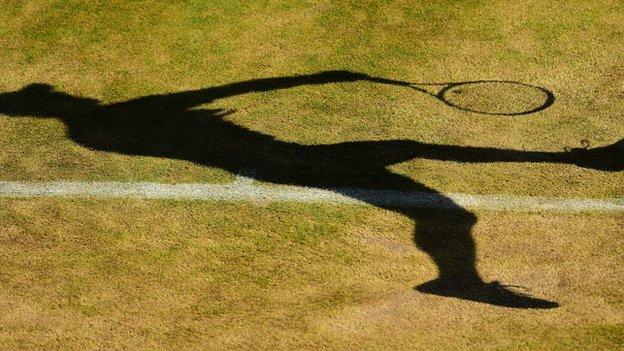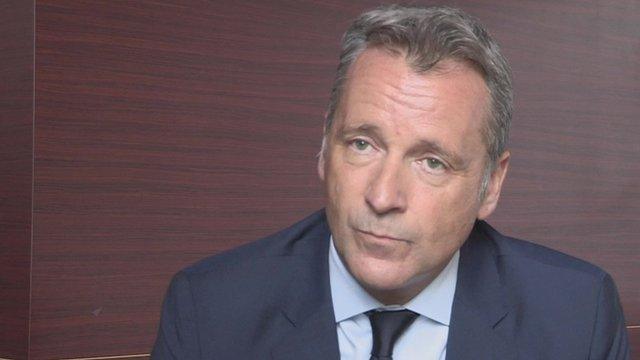Gambling ads criticised on first day of Australian Open
- Published

Anti-gambling campaigners are calling on the Australian Open to drop ads from a bookmaker
Allegations of tennis match-fixing have led to renewed criticism of a sponsorship deal between the Australian Open and UK bookmaker William Hill.
Advertisements for William Hill will be displayed in three areas during the Grand Slam tournament.
Critics said the deal represented a problematic deepening of ties between large bookmakers and the sport, and called on Tennis Australia to end it.
William Hill is not implicated in the match-fixing allegations.
In a statement, William Hill's Group Director of Security and Community, Bill South, said: "Close partnerships between regulated and licensed betting operators like William Hill and sporting bodies are part of the solution to integrity issues, not part of the problem.
"We have comprehensive information sharing agreements to inform the sport's integrity bodies, and for the sport to promote licensed operators is key to ensuring transparency.
"We are proud of our association with Tennis Australia and will continue to play our part in contributing to the integrity of tennis in conjunction with sports bodies and regulators."
Tennis Australia were approached for comment but did not respond in time for publication.
Match-fixing allegations
BBC and Buzzfeed News on Monday revealed evidence that match fixing is widespread at the top level of world tennis.
The allegations have dominated media coverage on the first day of the Australian Open, one of tennis's Grand Slam events.
Eight of 16 players repeatedly flagged by the Tennis Integrity Unit over the past decade are scheduled to play in the tournament.
ATP president Chris Kermode tells the BBC he is aware there is match-fixing within tennis but says it is at an 'incredibly small level'
'Historic partnership'
William Hill's appointment as "official betting partner" of the Australian Open was announced in October 2015.
The bookmaker's Australian CEO, Tom Waterhouse, said in a news release at the time that the company intended to expand its tennis product range, including bet-in-play products.
"We are extremely proud and excited to be the first official betting partner of a Grand Slam ... William Hill and the Australian Open is the perfect match," the release said.
Australian senator Nick Xenophon said Tennis Australia should sever its "unprecedented ties" with the bookmaker.
Mr Xenophon said the sponsorship deal was "completely inappropriate" for a sport marketed at families.
"This goes to a broader issue about gambling sponsorship and … sporting codes being hooked on gambling revenue," he said.
He said that allegations of match fixing were "incredibly serious" and called on Tennis Australia and sports regulators to show that Australian tennis was clean.
Mark Phillips is a betting analyst who worked on an investigation into suspicious gambling in tennis
'Relentless promotion'
Monash University gambling researcher Dr Charles Livingstone said he believed "the 'gamblification' of tennis" was well under way.
Dr Livingstone said promotion of sport as a means to gamble could help fuel corruption by making it easier for match fixers to hide their activities.
"The more that you promote [gambling], the bigger the prize pool is likely to be," he said.
"The market becomes so big that you can hide your dodgy dealings.
"The problem with tennis is that because it's a single person game, it's incredibly easy to fix a match."
Advertising gambling in sport also had a strong impact on young people, Dr Livingstone said.
"By exposing kids and young people to this relentless gambling promotion, they will take up … the offers that are made and become gamblers themselves."
'Trigger'
Dr Sally Gainsbury from Southern Cross University said her research indicated that problem gamblers were particularly affected by advertising.
"Most people say they're not too affected by advertising but the most vulnerable people have a harder time controlling the urge to bet," Dr Gainsbury said.
"It is the most vulnerable people who are most influenced by the ad. It is a trigger for them."
She called on regulators to put more safeguards in place around gambling advertising to protect vulnerable people.
- Published18 January 2016

- Attribution
- Published18 January 2016

- Attribution
- Published17 January 2016
